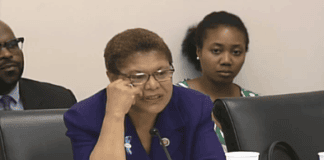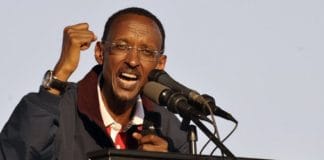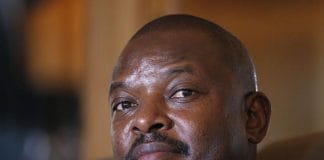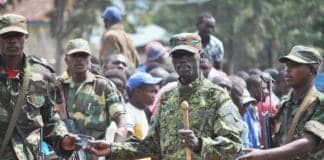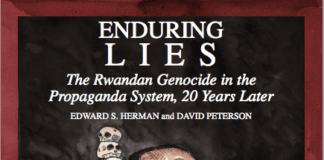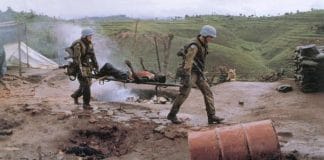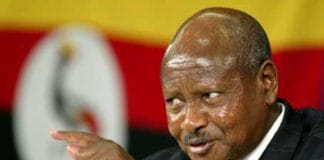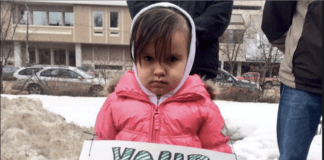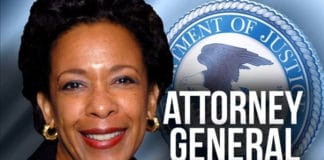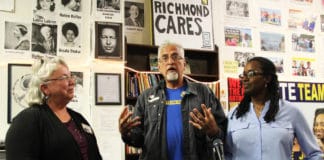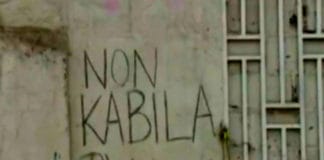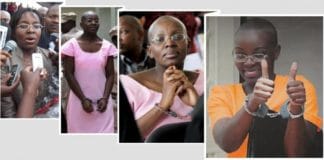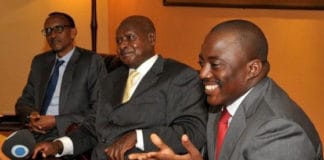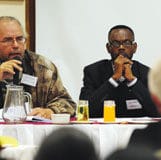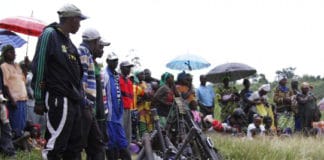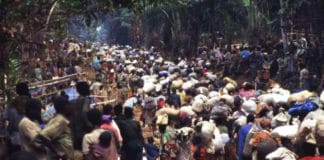Tags Pacifica
Tag: Pacifica
US prisoners sue for constitutional right to lifesaving Hep C cure
Attorneys filed lawsuits in Pennsylvania and Massachusetts this week on behalf of prisoners who say they’re being denied new lifesaving treatment for Hepatitis C because of the cost of the drugs. Gilead Sciences manufactures two versions of the cure, Harvoni and Sovaldi. Abbvie Pharmaceutical Limited, formerly Abbot Labs, manufactures another, Viekira Pak. The cost of any one of the three is roughly $90,000.
Rwanda: US Congress asks whether President Kagame hires assassins
Earlier this week, California Congresswoman Karen Bass and New Jersey Congressman Chris Smith heard testimony and queried witnesses in a House Foreign Affairs Committee hearing on U.S. relations with Rwanda. The central question under consideration was whether or not the U.S. should be supporting the Rwandan government with foreign aid and military assistance despite allegations of egregious human rights violations.
No way to escape the eye of the state in Rwanda
On May 21, 2015, David Himbara told a U.S. Foreign Relations subcommittee hearing on U.S. relations with Rwanda that “the smallest administrative unit is 10 houses, and every 10 houses is watched by one individual, and as you move on, the whole state machinery driving fear is very well established.” KPFA’s Ann Garrison spoke to David Himbara, a Rwandan exile in Canada, who addressed the House subcommittee about how this climate of fear is created.
Coup attempt defeated in Burundi, US continues to recognize Nkurunziza
A coup attempt prevented Burundi’s President Nkurunziza from flying home from Arusha, Tanzania, earlier this week, but Nkurunziza now seems to be firmly back in control. The U.S. has called on Nkurunziza to step down and not seek a third term in office, but they do not appear to have supported the aborted coup. On Thursday, the U.S. State Department issued a statement saying that it continued to recognize Nkurunziza as the country’s president.
Will the world remain silent with Rwanda and Uganda in DR...
Rwandan and Ugandan troops have been reported in the Democratic Republic of Congo during the past two weeks, but reporting is scant and neither the U.S., the U.N. Security Council nor any other members of the international community have spoken to this, the latest Rwandan and Ugandan violation of Congo’s sovereignty. The international community has instead been focused on the constitutional crisis in Congo’s neighbor, Burundi.
Increasing instability and political repression in African Great Lakes Region
Instability and political repression are increasing in the Great Lakes Region of Africa, as the presidents of Burundi, the Democratic Republic of the Congo, and Rwanda seek to remain in power beyond constitutional term limits. Rwandan and Ugandan troops crossed into the Democratic Republic of the Congo this week, sparking fears of another catastrophic regional war. Burundi is another pressure point further destabilizing the region.
Kibeho and Srebrenica: Ed Herman on the politics of genocide
This week marked the 20th anniversary of the 1995 Kibeho Massacre in Southwestern Rwanda, where an estimated 8,000 Rwandan Hutu people were killed by Rwandan President Paul Kagame’s Rwandan Patriotic Army. The same number of people were killed in Bosnia, also in 1995. Professor Ed Herman explains the politics of genocide manifest in media coverage of the 1995 massacres in Kibeho and Srebrenica.
Rwanda: No justice for Kibeho Massacre victims 20 years later
On April 22, 1995, 4,000 to 8,000 Rwandan Hutu people, maybe more, were massacred at the Kibeho Camp for Internally Displaced Persons in Southwestern Rwanda. The Kibeho massacre is one of many committed by the Rwandan Patriotic Army in Rwanda and DR Congo, but it is one of the most shocking because it was witnessed by U.N. Peacekeepers and well documented by at least two photographers, but no one was ever prosecuted for the crime.
Uganda’s Museveni to seek re-election in his 30th year in office
Three presidents in the Great Lakes Region of Africa, Burundi’s Nkurunziza, DR Congo’s Kabila and Rwanda’s Kagame, are all doing their best to stay in office beyond constitutional term limits. Ugandan President Yoweri Museveni, however, doesn’t have to overcome term limits because Uganda’s Parliament abolished them in 2005. He has already announced that he will run again in 2016, his 30th year in office.
A Ugandan doctor describes the real ‘Ebola Hot Zone’
In a recently published open letter to 60 Minutes, the CBS TV news magazine, former New York Times Africa correspondent Howard French expressed concern about the program’s “frequent and recurring misrepresentation of the African continent.” Dr. Edmund Lubega says, “As Africans, it would be good if we could organize ourselves and try to find means by which we can share and broadcast our stories in our own way, in our own words.”
A terrorist under every bed in Canada
Canadians gathered in 50 cities across Canada today to protest pending legislation known as C-51, or the Anti-Terrorism Act of 2015. The bill passed its second reading in the House of Commons in late February, and the government of Conservative Prime Minister Stephen Harper is now rushing to pass it with minimal debate. Retired Professor Michael Keefer was among the bill’s critics.
Rwanda: Free Victoire! international webcast
Over the weekend the organization Friends of Victoire hosted an international webcast to strategize about how to free Rwandan political prisoner Victoire Ingabire Umuhoza. Ingabire has become an icon of freedom, democracy and peace since returning to Rwanda in 2010 to attempt to stand for the presidency against incumbent Rwandan President Paul Kagame.
Loretta Lynch’s Rwanda ‘credential’
Loretta Lynch, Obama’s nominee for attorney general, has cited her service as special counsel to the prosecutor at the International Criminal Tribunal on Rwanda as a credential, unlike her controversial 2012 settlement with the HSBC bank after the bank admitted to facilitating money-laundering by Mexican drug cartels. Critics of the International Criminal Court and the dominant narrative about the Rwandan massacres dispute the account.
Does Richmond, California, have a progressive majority?
The Richmond Progressive Alliance, commonly known as the RPA, is backing Planning Commissioner Marilyn Langlois for the vacant seat on the Richmond City Council. The RPA made national and international headlines last November, when each of their three City Council candidates won their seats even though Chevron Corp, spent $1 million each to defeat them. KPFA’s Ann Garrison spoke to Richmond City Councilor Eduardo Martinez.
Congolese protest election delay: ‘Non Kabila Rwandais’
A widely feared and anticipated military attack by U.N. and Congolese troops on the FDLR has not materialized, despite U.N. Special Envoy Russ Feingold’s repeated urgings. Instead, this week, the people of the Democratic Republic of Congo rose up in the streets to demand that their Parliament not pass legislation allowing Congolese President Joseph Kabila to extend his stay in office beyond constitutional term limits. KPFA’s Ann Garrison has the story.
‘Friends of Victoire’ launched to free Rwandan political prisoner Victoire Ingabire
In January 2010, Rwandan opposition leader Victoire Ingabire Umuhoza returned from The Netherlands to Rwanda to attempt to run against sitting President Paul Kagame. She said she knew that she would be either assassinated or imprisoned, and she is now entering the fifth year of a 15-year prison sentence. KPFA’s Ann Garrison spoke to Marie Lyse Numuhoza, the founder of Friends of Victoire, a new organization created to fight for her freedom.
Congo’s problems are Museveni, Kagame and Kabila, not the FDLR
Potentially catastrophic military operations, authorized by the U.N. Security Council, may lie ahead soon for the Democratic Republic of the Congo. The U.N. Security Council has urged the Congolese army to join U.N. combat troops from South Africa, Tanzania and Malawi in hunting down the Democratic Forces for the Liberation of Rwanda, a Rwandan refugee militia commonly known as the FDLR.
Stop killing Congolese people
The First Congo War began in 1996, the second in 1998. The second war drew in all nine countries bordering the DRC, left millions dead, displaced millions more, and ignited conflicts that continue in the country’s mineral rich east, despite the peace treaty signed in 2003. Competition for Congolese resources can’t be stopped, but the massacre of Congolese people can and must, says Dr. Jean Didier Losango.
Feingold dismisses fears of regional war in DR Congo
Former Wisconsin senator, now U.S. special envoy to the Great Lakes Region and the Democratic Republic of the Congo Russ Feingold held an online press conference with members of the African press in Africa earlier this week. He said that the FDLR had not surrendered enough of its troops to satisfy the U.N. Security Council’s requirement and that military action was therefore required.
Rwanda and Uganda deploy FDLR excuse, threaten cross-border war in Congo
Rwanda and Uganda are threatening to send troops across their borders with the Democratic Republic of the Congo yet again to, they say, eliminate the Hutu refugee militia known as the Democratic Forces for the Liberation of Rwanda, or FDLR. Going after the Hutu refugee militia has been Rwanda and Uganda’s excuse for crossing into Congo for the past 18 years, since the outset of the First Congo War in 1996.





